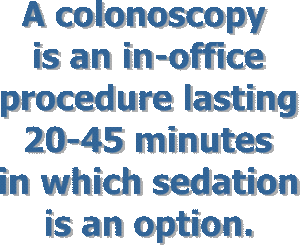
Colon cancer can cause abdominal pain, but does it always?
When I say “pain,” I don’t mean cramps.
There’s a difference between abdominal pain and abdominal cramps. Abdominal pain can result from colon cancer.
But have you wondered, however, if in every case of colon cancer that’s gone untreated long enough to produce symptoms, if abdominal pain is always one of the resulting symptoms?
“Remember, for polyps and early cancers, the hallmark symptom is the absence of symptoms — this is why getting screened at age recommendations while asymptomatic is so important,” explains gastroenterologist Whitney Jones, MD, a national expert and frequent speaker on early-age onset colon cancer prevention, and Founder, Colon Cancer Prevention Project.
A person can “feel fine” yet have colon cancer.
A colonoscopy can detect this disease early, long before it invades surrounding tissue and causes symptoms (such as abdominal pain).

Freepik.com
Dr. Jones explains, “Abdominal pain is one of the many hallmark symptoms and presents usually when there is advanced disease including obstruction, perforation or spread into adjacent organs.
“It can be the initial presenting symptom of large polyps or early cancers.”
Because symptoms of numerous benign conditions can mimic those of colon cancer, it’s important to get colonoscopy screenings beginning at age 50 if you are of average risk for this disease.

To determine if you’re at average risk or increased risk, you need to consult with a physician.
A key risk factor for this disease is having a parent or sibling who had/has the condition.
Pain in the belly is one of the most common ailments of the human body.
Thus, if you’ve been experiencing abdominal pain lately, don’t jangle your nerves by jumping to the conclusion that this must mean colon cancer, even if you are over age 50.
It’s more likely to be from any number of benign conditions.
However, does the abdominal pain from colon cancer feel different from stomach discomfort caused by benign conditions?
Dr. Jones says, “Not really. This is why any unexplained abdominal symptoms should be fully evaluated and if unresolved, colonoscopy should be a consideration once evaluated by a health care professional.
“Symptoms overlap greatly between all of the different GI problems and this includes colon cancer.
“Only a thorough exam can tell the difference and thank goodness, most of the times the cause will not be colon cancer.”
There are literally reams of causes of abdominal pain not related to colon cancer.
However, some non-malignant causes of stomach pain are of a very serious nature, such as appendicitis, a ruptured spleen and a ruptured ovarian cyst — all of which are life-threatening if not promptly treated.
In addition to abdominal pain, Dr. Jones adds the following for colon cancer symptoms:
“Change in bowel habits, rectal bleeding or blood on the tissue (paper), change in stool caliber, fatigue either from anemia or from advanced colon cancer, weight loss, nausea/vomiting from obstructions, anemia, jaundice from metastatic colon cancer to the liver or the bile duct.”
 Dr. Jones’ practice interests include prevention and treatment of colon cancers, pancreatic disease and biliary disease. He has authored numerous scientific articles, reviews and abstracts and presented at a variety of national and international scientific meetings. Colon Cancer Prevention Project
Dr. Jones’ practice interests include prevention and treatment of colon cancers, pancreatic disease and biliary disease. He has authored numerous scientific articles, reviews and abstracts and presented at a variety of national and international scientific meetings. Colon Cancer Prevention Project
 Lorra Garrick has been covering medical, fitness and cybersecurity topics for many years, having written thousands of articles for print magazines and websites, including as a ghostwriter. She’s also a former ACE-certified personal trainer.
Lorra Garrick has been covering medical, fitness and cybersecurity topics for many years, having written thousands of articles for print magazines and websites, including as a ghostwriter. She’s also a former ACE-certified personal trainer.
.


























